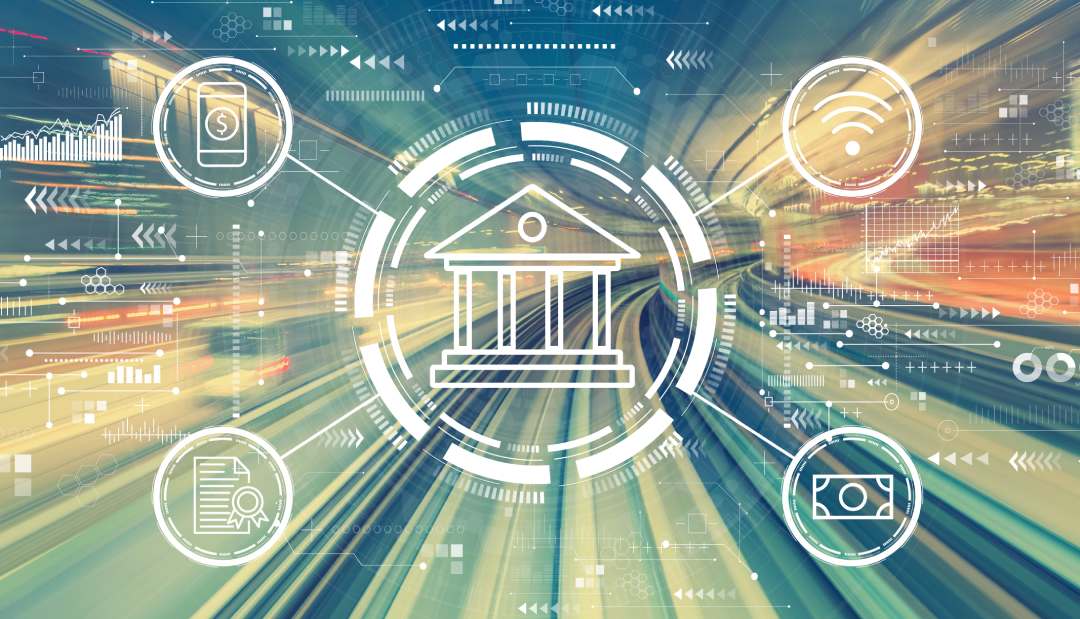Our era is being reshaped by technological advancements continually, fintech—or financial technology—stands out for its remarkable influence on the financial sector’s velocity. It is not merely evolving; it is on a fast track, fueled by the innovative applications and services that fintech companies bring to the table. These developments go beyond simple technological enhancements, causing a significant shift in the financial ecosystem towards greater digital fluidity and accessibility.
Fintech is revolutionizing the way we engage with financial services, moving us from the traditional, often cumbersome, transactional methods to a streamlined, digital-first approach. This transformation is evident across all levels of financial interactions, bringing in a new era where the convenience and speed of digital finance are paramount.
This article aims to explore the dynamic role of financial technology in reimagining traditional financial services, highlighting the opportunities this revolution presents and contemplating the future trajectory of the fintech sector.
Traditional Concept of Money vs Fintech’s Perspective of Money
Money has experienced a tremendous shift, evolving from its conventional physical representations of coins and banknotes to a digital-first reality. This progression symbolizes a cultural trend toward digital integration, in which the essence of money is transformed from a tangible asset to a digital entity. The implications of this change are far-reaching, affecting how money is kept, accessed, and used. This new paradigm promotes the idea of money as a fluid, digital construct, expanding the breadth of financial interactions and transactions beyond the physical constraints that formerly defined them.
In the digital age, the function of financial technology is to streamline and improve financial procedures that were previously limited by physical limits. Fintech has played a critical role in modernizing the digital financial environment, with an emphasis on improving financial services’ accessibility, efficiency, and inclusion. Fintech improves interactions with financial services by harnessing technology, highlighting the significance of digital fluency. It has strengthened its flow and utility in the economy, guaranteeing that financial services can better meet the requirements of a globally linked population.
The shift to a digital-first financial ecosystem represents a considerable break from previous norms, aligning our relationship with money with the concepts of flexibility and efficiency. As digital transactions become increasingly incorporated into our everyday lives, the financial industry evolves in conjunction with wider trends toward digitization and connectivity. This change highlights a new perspective on money that transcends physical bounds and asks us to rethink the future of financial relationships in an increasingly digital environment.
Exploring the Opportunities of Fintech
The revolution in financial technology is dramatically reshaping how we interact with financial services, introducing concepts like embedded finance and Banking-as-a-Service (BaaS).
These innovations have seamlessly integrated financial capabilities into various digital platforms, allowing easy access to financial services. Now, tasks such as executing transactions, obtaining loans, or managing assets can be effortlessly performed within digital environments. This seamless integration streamlines financial activities and significantly enhances user experiences by embedding essential financial tools directly into digital journeys, eliminating barriers and improving transactional efficiency.
At the same time, fintech is pivotal in promoting financial inclusion, extending its reach to those previously excluded from the traditional banking system. Its inventive solutions provide critical banking services to the unbanked and underbanked, broadening the spectrum of financial opportunities available to these groups. Beyond offering basic banking functions, fintech is making sophisticated financial products accessible to a wider audience, democratizing access to financial resources.
This push towards a more inclusive financial ecosystem is key to levelling the playing field, ensuring that a larger portion of the global population can benefit from financial empowerment and security. Through fintech’s advancements, the vision of a universally accessible financial world is gradually becoming a reality, marking a significant stride towards financial equality and inclusivity.
The Future of Fintech & Perspective on Money
The trajectory of fintech is set to revolutionize the financial landscape with more innovations to meet the digital demands of tomorrow. As fintech advances, it will blur the lines between financial and digital experiences, making transactions more integrated and tailored to individual lifestyles. This will shift our understanding of money from a tangible asset to a more abstract, digital-first entity, emphasizing flexibility and accessibility.
Fintech will champion financial inclusivity in the future, ensuring that advanced financial services reach every corner of society. This reimagined financial ecosystem will change how we manage money and redefine its role as a tool for empowerment and growth across global communities. It will mark a significant leap towards a world where financial opportunities are universally accessible.
How Can EMBank Help?
Established in Lithuania and licensed by the European Central Bank, EMBank provides a Banking as a Service, combined with Safeguarding Account, Business Account, and Accumulative Account types, as well as payment options through SEPA, Swift, and Target2.
Please keep in mind that the above information has been prepared or assembled by the EMBank and is intended for informational purposes only. Some of the information may be dated and may not reflect the most current legal developments.
Please send an email to [email protected] to arrange a telephone call.




